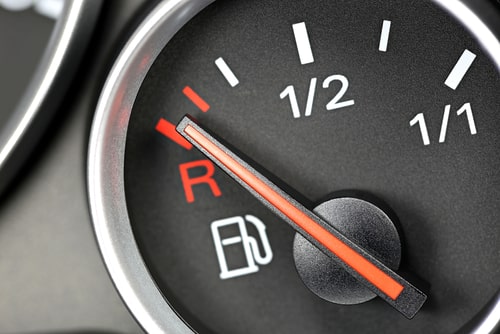Improve your fuel consumption – How can you avoid wasting fuel?

For the majority of car owners, money dictates pretty much everything. Affordability is key, whether it’s the initial buying or leasing of your vehicle, maintenance or basic running costs.
While some of these costs can be down to luck, who could predict that stone cracking your windscreen, for instance, others are consistent and unavoidable. No cost is more unavoidable than fuel.
That’s why learning how you can avoid wasting fuel is so important. Understanding what increases fuel consumption, and what reduces it, is key to keeping your fuel costs low.
Petrol and Diesel power the majority of the vehicles across the UK, and you’d be lying if you said you didn’t wish you could get a little extra out of your car every time you see the fuel light flash up on your dash. That’s why we’ve put together the ultimate guide to understanding and reducing fuel consumption.
What is fuel consumption?
Before we get going with helping you reduce your fuel consumption, it’s worth understanding what it is. The dictionary defines fuel consumption as:
“The amount of fuel a particular vehicle burns to travel a certain distance and a certain speed.”
In the UK fuel consumption is measured in miles per gallon (mpg). Now you know what it is, it’s time to understand how you calculate it.
How are fuel consumption and mpg calculated in the UK?
To calculate fuel consumption you need to jot down:
- Your mileage since your last fuel top-up
- How much fuel you’ve used
These will be used in combination. You now have two options, you can either stick with litres or convert to gallons to calculate mpg.
Calculate your fuel consumption in litres
If you just want to use litres, then the simple calculation is:
(Distance travelled/Litres of fuel used) = fuel consumed per litre
An example of this in action:
180 miles travelled / 25 litres of fuel = 7.2 miles per litre
Calculate your fuel consumption in mpg
Once you’ve calculated the number of litres used, you simply multiply the outcome by 4.544 to convert it into gallons. This will give you the overall mpg.
Using the example from above:
7.2 * 4.544 = 32.72mpg
10 WAYS TO REDUCE FUEL CONSUMPTION
Now you know what it is, and how to calculate your own, it’s time to start looking at how you can avoid wasting fuel. There are driving techniques that will improve fuel consumption and, thankfully, a number of tricks and tips which can actually help you stretch your fuel economy a little further too. Here at Cox Motor Parts, we have devised our top 10 tips to reduce fuel consumption.
1. CHOOSE MANUAL OVER AUTO
Owning a manual car gives you more control over the amount of fuel that’s burned during each journey.
Whilst automatic vehicles make driving easier by taking care of the gear changes for you, they can overdo it on the engine revs. This means they are often less fuel-efficient than a car with a manual gearbox if you’re looking to maximise your fuel efficiency.
For example, an automatic won’t make the decision to set off in second gear when heading downhill but, in an automatic, you can. This takes less fuel out of the tank getting to the top of first gear.
2. MINIMIZE AIR CONDITIONING (AC) USE
Understandably this is something you can’t do without in the more uncomfortable months of the year but, when possible, turn off all heating/air conditioning to save on fuel.
Recent studies by Vox found that using AC instead of rolling your windows down could cost you significantly. Their study showed that using AC over open windows to lower temperatures while travelling at speeds up to 70mph could cost you an additional 10% of fuel economy.
This is because air conditioning is directly powered by the engine, so particularly when you are driving at slow speeds, your engine is having to work overtime to get the air conditioning working to the same level as if you were driving closer to 70mph.
While having the windows does increase drag, and therefore an added strain on fuel economy, it is nowhere near as dangerous to your tank as air conditioning.
3. IMPROVE YOUR VEHICLE’S AERODYNAMICS
While the word aerodynamics is a word more commonly associated with F1 cars or the latest supercar release, it is something that every car can improve on.
Try things like leaving your Honda Civic roof rack at home when you aren’t going to need it, keep the windows up as often as possible or don’t tow that trailer everywhere if you don’t need to. Basically, a vehicle that’s causing considerable drag is most likely to waste fuel.
4. DRIVE MORE CONSERVATIVELY
Being an impatient driver will see you pay for it. Being conservative with your accelerating and using your gears to full effect could save you plenty of fuel.
All vehicles see a reduced fuel economy when they get above 55mph, however depending on the road you are on, you may have to drive north of this.
For example: If you are on the motorway, where the speed limit is 70mph, driving at 65mph instead of 75mph could improve your fuel efficiency by 13%.
5. CARPOOL WHEN POSSIBLE
Unsurprisingly, sharing lifts with co-workers or friends will save you a decent bit of cash and therefore fuel over a prolonged period.
Choosing to drive alternate weeks, or asking for fuel money from those who can’t drive is the most basic way of making this one effective.
6. REDUCE YOUR VEHICLE’S WEIGHT
Similar to improving aerodynamics, trimming the fat from your regular journey could make a big difference to your fuel economy.
Why do you think manufacturers obsess over the weight of their racing cars? It’s because they want to get the best performance out of a car and lose anything that might be needlessly weighing it down.
Whether your back seats are full of booster fittings for the kids, or you are still lugging that bass amp around in the boot to give back to your friend, they probably don’t always need to be there. Shed any excess weight and feel the benefit in your pocket.
7. TURN YOUR ENGINE OFF WHEN YOU’RE IDLE
You might be aware that more cars now save fuel by switching off as soon as you come to a halt however, the majority still don’t have this feature. While this seems a touch over the top it is actually very necessary.
Think of it this way, when you are at a standstill, your mpg should technically be 0, but when your engine is running you’ll still be burning fuel. While you are burning nowhere near as much as you do when you are on the motorway, you’re still slowly burning away precious fuel without even moving.
8. REPLACE YOUR AIR FILTERS
Air filters can have a negative effect on your fuel economy, so it’s important to keep them clean. You can do this by taking your car in for regular checkups.
A clogged air filter means your engine has to work overtime, and when your engine is working in overdrive you’ll use more fuel for every job, even the basic ones.
9. CHECK YOUR TYRE PRESSURE & BRAKE PADS
First and foremost, perfectly functioning tyres are there to keep you gripped to the roads. Along with your car’s brakes, your tyres help your vehicle stop as quickly and safely as possible.
Braking and stopping distance can have a big effect on fuel economy, and the worse it is, the more fuel you waste.
Having tyres that are either low on pressure or overinflated can affect your vehicle’s stopping distance and therefore its fuel economy. This will hit you hard in the pocket, so have regular checks.
See this from Tyre Pal for more information.
10. BUY SMART AND CHECK FUEL EFFICIENCY
While it does seem fairly obvious, it isn’t always the first thing people consider when hunting for a new car or vehicle.
The best course of action is to do your research on the models you are interested in and work out if there is going to be any meaningful difference fuel wise. If you buy a car with excellent fuel economy, you’re saving money before you even get driving.
Look after your car and stop wasting fuel
So there you have it, 10 ways to reduce fuel consumption. While not all of these will work for everyone, there is certainly a couple that could help you. Looking after your car is key to keeping your fuel consumption down, whether it’s clean filters, new tyres or well-maintained brake pads. At Cox Motor Parts we can help you find the very best genuine Honda parts for your car to keep your fuel consumption low. Whether you need Honda Civic parts or are looking for Honda Jazz accessories, there’s nothing you can’t find.
FUEL CONSUMPTION FAQs
Which driving technique helps save fuel?
Generally, driving more conservatively will save fuel. Aggressive driving will usually burn fuel at a faster rate, especially if you’re constantly accelerating and slowing down. Usually, fuel burns much faster over 55mph, but the type of road can affect this.
Does cruise control use more fuel?
Cruise control can cause you to both use more fuel and less fuel. It all depends on how you’re using it.
Driving at a constant speed, which cruise control does, can save fuel. The key is that this only really works on flat surfaces, so it will only really save you money on a motorway.
Cruise control doesn’t react very quickly to changes in the gradient of the road and can burn additional fuel.
Does air conditioning use fuel?
Air conditioning and heating both use a substantial amount of fuel. You should avoid using either of them if you’re trying to not waste any fuel.






